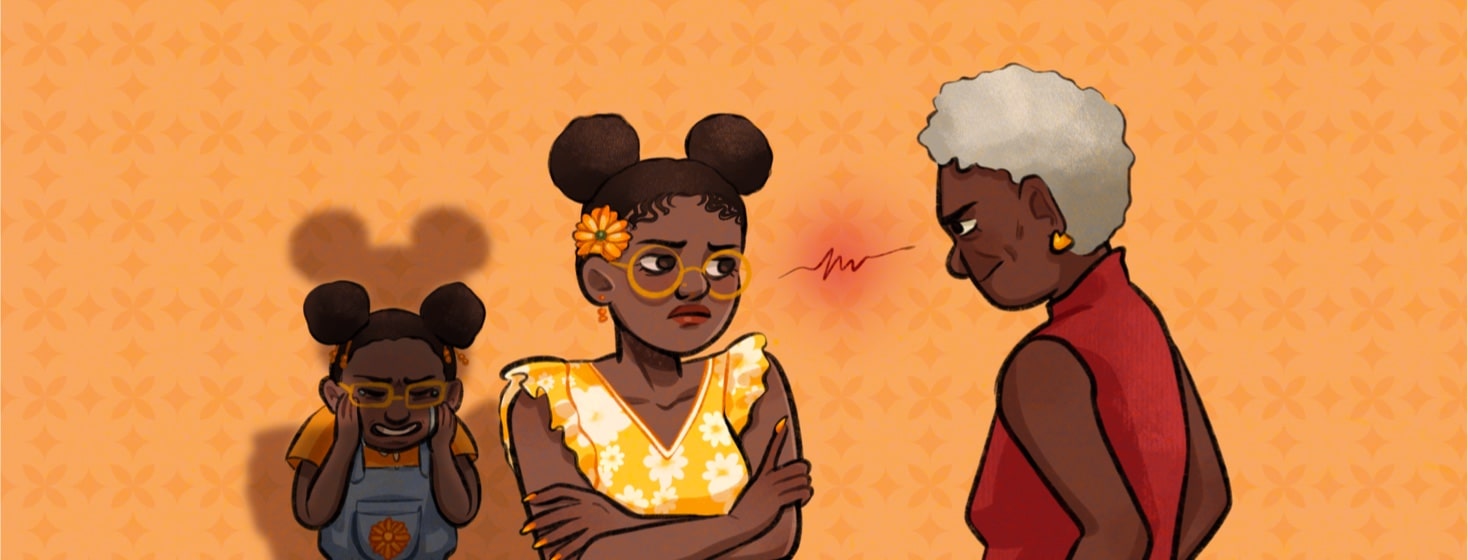Releasing Childhood Trauma
New year, new problems
Unfortunately for me, 2023 hasn't been off to a great start. In fact, the year started off with a series of unrelated health issues from increased chest pain to rigor, nausea, and high-grade fevers. It felt like the unpredictability of my chronic illness was back and as you can imagine, the stress started to take a toll on both my physical and mental health.
My post-transplant recovery has been an increasingly isolating experience because friends, family, and providers assume that my day-to-day healthcare needs are no longer a primary concern. For many, if I've been 'cured' of sickle cell disease (SCD) then continuity of care is non-existent.
Memories resurfacing
Last week I needed help so I asked my mom to pick up a prescription for sublingual Suboxone, a medication used to treat acute and chronic pain in sickle cell disease. Because of its relevance to this story, it is important to note that Suboxone controls the symptoms of cyclic opioid withdrawal and physiologic opioid dependence while providing a safer alternative for pain relief.
When my mom saw the tamper-resistant tape on the medication bottle, she made a statement that innately triggered feelings of fear, misjudgment, anger, and heartbreak. Her words to me were "You're in pain again?!" At that very moment, I was no longer a woman, the traumatized little girl who was taught to hide her pain resurfaced and I felt broken all over again.
Painful experiences from childhood
As a young child, no one ever sat me down to go over the nuances or complications of sickle cell disease. I learned about sickle cell by seeing and experiencing things. One experience that is ingrained in my memory took place in 1997 when I was 10 years old. My pediatrician had warned my parents about the harmful side effects of pain medications, highlighting issues like opioid dependency, cognitive issues, gastrointestinal problems, and addiction.
Going along to get along
To ensure I wasn't labeled a drug-seeker, I learned very early on, how to bear pain by masking it. At the peak of a vaso-occlusive crisis, I was given a dose of pain medication every 8 hours and providers thought that the best way to build up my pain threshold was to limit the dose of pain relief I received. If I was in pain for a longer period of time then I'd become accustomed to being in pain.
Speaking candidly, for most of my life, I became quite the artisan at masking my pain. It's called going along to get along and I don't take pride in admitting this sore truth.
Discrimination
In West Africa, sickle cell disease is a highly stigmatized chronic illness that stems from institutions, healthcare providers, the general public, family, and friends. The stigma associated with SCD is a mark of shame, disgrace, and disapproval which results in an individual being rejected discriminated against, and excluded from participating in a number of different areas of society.
Evidence suggests that stigma and impairment in caregiver well-being can alter the quality of care in children with sickle cell disease. At the time, I think my parents were doing the best they could with the cards they were dealt and while kids are resilient, they are not made of stone. The little girl that lies dormant wishes one of the adults believed her sickle pain and helped her cope in healthier ways.1
Releasing childhood trauma
Every time I find myself in the throes of relentless chronic pain, I re-experience the trauma in my mind over and over again. The stress triggers anxiety, headaches, increased anger and aggression, and resentment toward those who were supposed to protect me as a child. As an adult, I have a hard time treating my own pain because parts of me have come to accept that living with pain is normal.
Dealing with emotional distress and high levels of stress is unnerving. Research shows that when a child experiences trauma that teaches them that they cannot trust or rely on their caregiver, they're likely to believe that the world around them is a scary place and that people are dangerous. For a long time, my experiences led to struggles with romantic relationships because I lost my ability to trust in romantic partners.2
Healing
In order to heal from my trauma, I had to learn cognitive processing therapy (CPT) and acceptance and commitment therapy (ACT). CPT is a behavioral treatment that's focused on helping people who are "stuck" in their thoughts about a deeply traumatic event that occurred in their life. I also needed to have honest conversations with my parents and help them understand how certain events affected me.
I try to be patient with my healing, reassuring the little girl that lies within me that I'll do everything to keep her safe while validating her emotional pain.

Join the conversation